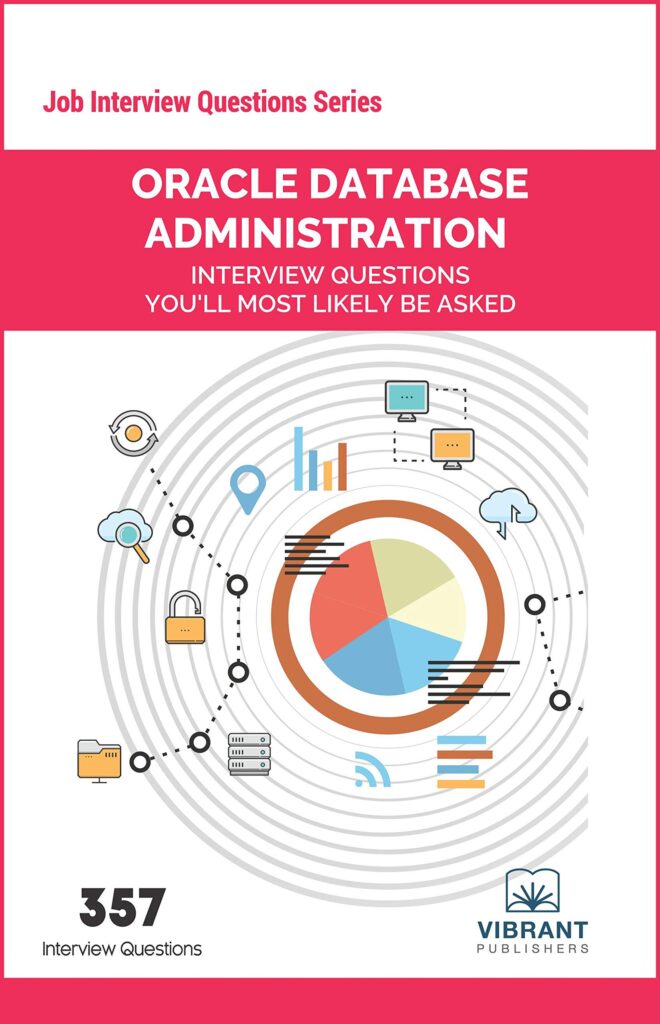Fluency in data skills is a highly prized commodity in the world of web development, and if you have specific abilities in the Oracle database management system, so much the better. Oracle is the world’s most used database management system, and if your career is in this field, then careful research and close scrutiny of Oracle interview questions will be necessary if you are excel.
Oracle emerged in the 1970s as the phoenix from the ashes of an abandoned initiative of the US Central Intelligence Agency (CIA)) to create a database that would provide the answer for every question. The original project was abandoned due to lack of resources, but three of the experts on the original project team—Larry Ellison, Bob Miner and Ed Oates—left to found a company, and the rest is history.
For database programming interviews you will need to know about Oracle, database administration, as well as SQL (Structured Query Language, the standard programming language for communicating with relational database management systems). Hirers in database administration are seeking a winning blend of personality, professionalism and technical know-how, so a thorough knowledge of Oracle interview questions and SQL interview questions should be a prerequisite.
Brush up on your standard interview preparation techniques, as well as researching the common and most difficult Oracle interview questions.
There are some really useful guides to Oracle interview questions too, that you will find invaluable for getting prepared, including Oracle Database Administration Interview Questions You’ll Most Likely Be Asked by Vibrant Publishers; Volume 12 of the same publishing house’s Oracle PL/SQL Interview Questions You’ll Most Likely Be Asked. There is also Oracle (Sql) Interview Questions by Avinash S Tiwari.
Check Price >
6 Difficult Oracle Interview Questions
To help you in your research, we checked out a range of Oracle interview questions posted online by database programming experts and narrowed them down to this sample of 6. Research these questions carefully, think about them. Never go into a job interview and ‘wing’ it. Be prepared. If you put in the time now, there are no Oracle interview questions that will stump you on your big day. Good luck, Oracle AGENTs!
1. How might you get around hard coding the elements in a fetch cursor?
Writing for Database Journal, James Coopman lists this as one of the Oracle interview questions that expose common issues that can cause trouble when writing PL/SQL. An interviewer, he argues, should see your attention to detail and desire to improve the environment, even if they, themselves, have tendencies to crank out code without regard to standards.
Such Oracle Interview Questions truly cut to the heart of what Oracle interviewers are looking for. Interviewers should see your attention to detail and desire to improve the environment, even if they, themselves, have tendencies to crank out code without regard to standards, Coopman writes.
Coopman identifies the coding as one of the most common hard coding forms, other than I’d have to say that this is one of the most common forms of hard coding, other than actual values/IDs being used in a SQL statement. Practitioners often use the %TYPE notation for individual variables, which within the declaration section. However, they seem to lose sight of the %ROWTYPE.
When fetching a cursor INTO variables those variables are often strung out in a list such as: FECTH empId, empFname, empLname INTO vempId, vempFname, vempLname; clearly requiring the addition of another variable in the declaration section and at the end of the INTO clause. So, simply use %ROWTYPE and issuing something like:
FETCH empId, empFname, empLname INTO empRowtype;
This will remove all hard coding in the body of the PL/SQL code.
2. What Is an Index?
Another of the Oracle interview questions that appears deceptively simple, it is, according to the TestingBrain.com website, something that you should research meticulously. Nothing less than a flawless answer to Oracle interview questions such as these is acceptable!
Here is what the TestingBrain.com people suggest as a response:
An index is an optional structure associated with a table to have direct access to rows, which be created to increase the performance of data retrieval. The Index can be created on one or more columns of a table.
3. Explain the Oracle version numbering system.
On the blog of the online academy Udemy, this is one of the simplest Oracle interview questions, but the right response will go a along way towards convincing interviewers of your familiarity with Oracle. Udemy’s response to this question is to break down the release number 10.1.0.3.2 as follows
- 10 is the major database release number.
- 1 is the database maintenance release number.
- 0 is the application server release number.
- 3 is the component-specific release number.
- 2 is the platform-specific release number.
4. Which of the following are restricted prodecures, and which of the following are unrestricted procedures?
Udemy makes the following classifications and distinictions:
- Class: unrestricted.
- Call-query: unrestricted.
- Execute-query: restricted.
- User-exit: unrestricted.
- Exit-form: restricted.
- Up: restricted.
- Message: restricted.
- Post: restricted.
- Break: unrestricted.
5. Explain the difference between a hot backup and a cold backup and the benefits associated with each.
According to Oracle FAQ, A hot backup is basically taking a backup of the database while it is still up and running and it must be in archive log mode. A cold backup is taking a backup of the database while it is shut down and does not require being in archive log mode. The benefit of taking a hot backup is that the database is still available for use while the backup is occurring and you can recover the database to any point in time. The benefit of taking a cold backup is that it is typically easier to administer the backup and recovery process. In addition, since you are taking cold backups the database does not require being in archive log mode and thus there will be a slight performance gain as the database is not cutting archive logs to disk.
6. Explain the difference between a FUNCTION, PROCEDURE and PACKAGE.
Returning to James Coopman from Database Journal for this one, here is what he writes: A function and procedure are the same in that they are intended to be a collection of PL/SQL code that carries a single task. While a procedure does not have to return any values to the calling application, a function will return a single value. A package on the other hand is a collection of functions and procedures that are grouped together based on their commonality to a business function or application.




